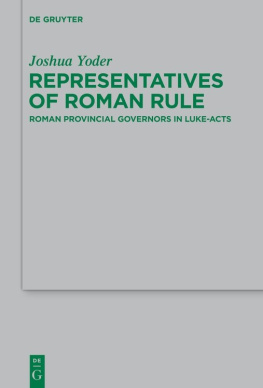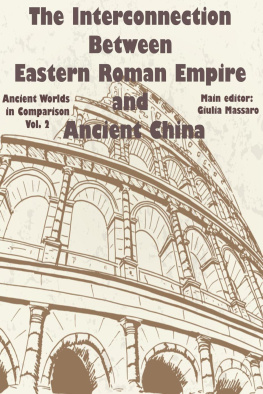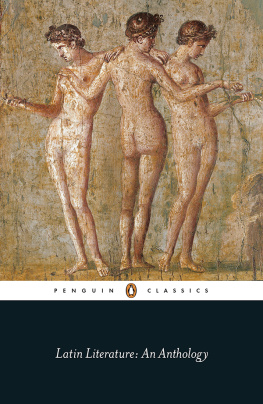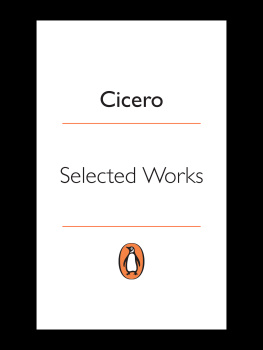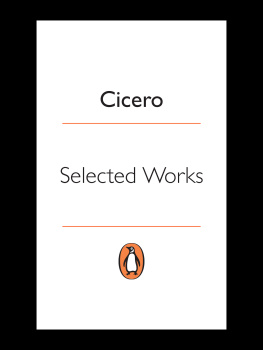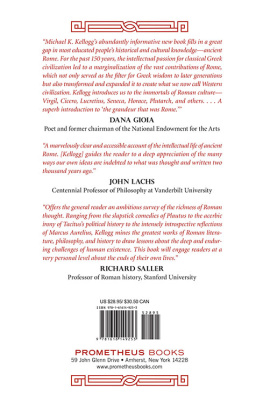Leisured
Resistance
CLASSICAL ESSAYS
Series editor :
Thomas Harrison, University of Liverpool, UK
Also available from Bloomsbury Academic :
Ancient Democracy and Modern Ideology
Peter Rhodes
Interpreting Classical Texts
Malcolm Heath
The Invention of Ancient Slavery
Niall McKeown
Reading Cicero:
Genre and Performance in Late Republican Rome
Catherine Steel
Writing Ancient Persia
Thomas Harrison
CONTENTS
For my brothers
Robert , Stephen and Neil
Leisured
Resistance
Villas, Literature and
Politics in the Roman
World
Michael Dewar
Bloomsbury Academic
An imprint of Bloomsbury Publishing Plc
50 Bedford Square | 1385 Broadway |
London | New York |
WC1B 3DP | NY 10018 |
UK | USA |
www.bloomsbury.com
Bloomsbury is a registered trade mark of Bloomsbury Publishing Plc
First published 2014
Michael Dewar, 2014
All rights reserved. No part of this publication may be reproduced or transmitted in any form or by any means, electronic or mechanical, including photocopying, recording, or any information storage or retrieval system, without prior permission in writing from the publishers.
Michael Dewar has asserted his right under the Copyright, Designs and Patents Act, 1988, to be identified as Author of this work.
No responsibility for loss caused to any individual or organisation acting on or refraining from action as a result of the material in this publication can be accepted by Bloomsbury or the author.
British Library Cataloguing in Publication Data
A catalogue record for this book is available from the British Library.
ISBN: 978-1-47250-412-8
Library of Congress Cataloging-in-Publication Data
A catalog record for this book is available from the Library of Congress.
Typeset by Fakenham Prepress Solutions, Fakenham, Norfolk NR21 8NN
Aus., Mos . Ausonius, Mosella
Cic., Att . Cicero, Epistulae ad Atticum (Letters to Atticus)
Cic., Leg . Cicero, De Legibus (On the Laws)
Cic., Off . Cicero, De Officiis (On Duties)
Cic., Tusc . Cicero, The Tusculan Disputations
Hor., Carm . Horace, Carmina (Poems or Odes)
Hor., Ep . Horace, Epistulae (Letters)
Hor., Sat . Horace, Satires (their traditional name in English, though Horace calls them Sermones, Conversations)
Juv., Sat . Juvenal, Satires
Plin., Nat. Hist. Pliny the Elder, The Natural History
Plin., Ep . Pliny the Younger, Epistulae (Letters)
Plut., Cic . Plutarch, The Life of Cicero
Sal., Cat . Sallust, The Conspiracy of Catiline
Sen., Ep . Seneca the Younger, Epistulae Morales
Sid., Carm . Sidonius Apollinaris, Carmina (Poems)
Sid., Ep . Sidonius Apollinaris, Epistulae (Letters)
Stat., Silv . Statius, Silvae (Woods, with the secondary meaning timber, raw material)
Suet., Aug . Suetonius, The Life of Augustus
Suet., Cal . Suetonius The Life of Gaius Caligula
Suet., Claud . Suetonius, The Life of Claudius
Suet., Dom . Suetonius, The Life of Domitian
Suet., Nero Suetonius, The Life of Nero
Symm., Ep . Symmachus, Epistulae (Letters)
Tac., Ann . Tacitus, Annales (Annals, Year-by-Year Historical Record)
Tac., Hist . Tacitus, Histories
Ven. Fort., Carm . Venantius Fortunatus, Carmina (Poems)
BC
Cicero abandoned by Pompey the Great and exiled from Rome by Clodius
Battle of Pharsalus
Death of Julius Caesar
Death of Cicero
BCAD Reign of Augustus
The first three books of Horaces Carmina complete
c. 20 The first book of Horaces Epistulae complete
AD
1437 Reign of Tiberius
3741 Reign of Gaius Caligula
4154 Reign of Claudius
5468 Reign of Nero
Death of Agrippina the Younger, mother of Nero
Great Fire of Rome
Discovery of the Conspiracy of Piso, and the deaths of Seneca the Younger and Lucan
Death of Nero and end of the JulioClaudian dynasty
Civil war. Reigns of Galba, Otho and Vitellius
6979 Reign of Vespasian
Eruption of Vesuvius, destruction of Pompeii and Herculaneum, and death of Pliny the Elder
7981 Reign of Titus
8196 Reign of Domitian
80c. 102 Martial writes the Liber Spectaculorum and 14 books of other Epigrams
Statius victory at the Alban Games held at Domitians villa (March)
Statius visit to the villa of Pollius Felix (August)
c. 926 Statius writes the Silvae
Reign of Nerva
98117 Reign of Trajan, Best of Princes
Pliny the Younger, appointed consul, delivers the Panegyricus in honour of Trajan
c. 110c. 112 Pliny the Younger governor of Bithynia-Pontus
11738 Reign of Hadrian
Suetonius writes the Lives of the Caesars
c. 110c. 130 Juvenal writes the Satires
c. 114c. 120 Tacitus writes the Annals
36475 Reign of Valentinian I
c. 371 Ausonius writes Mosella
Symmachus writes to his father about Bauli ( Ep . 1. 1)
Ausonius appointed consul by Gratian
Rome sacked by Alaric the Goth
Sidonius Apollinaris appointed Prefect of the City of Rome
c. 469c. 482 Sidonius writes the Epistulae
c. 470 Sidonius consecrated Bishop of Auvergne (with his seat in the city of Clermont)
Clermont captured, after repeated sieges, by Euric, king of the Goths, and Sidonius imprisoned
c. 486 Death of Sidonius
565c. 600 Career of Venantius Fortunatus in Gaul
I am grateful first and foremost to Tom Harrison, who invited me to contribute to the series in which this book appears, and whose kindness, along with his patience, ought to have been rewarded with more timely results. I am similarly grateful for the remarkable patience of Deborah Blake, as also to the anonymous reader who assessed the original proposal for Duckworth and responded to it with great generosity. I continued to enjoy support and professionalism beyond anything I could claim to deserve when the project came under the aegis of Bloomsbury, and I am glad to record my gratitude to Charlotte Loveridge, Dhara Patel, and Matthew Porter. A second anonymous reader made a number of suggestions that have improved the first version, and also merits my thanks for giving me license to put back in some material and items of bibliography that had at first been omitted for the sake of economy. At Fakenham Prepress Solutions Kim Storry and Martyn Oliver have been models of efficiency, taking in their stride not only my wayward orthography but also the risk that the proofs might have been held up by jury duty.
The University of Toronto granted me the sabbatical leave in which the bulk of the necessary preparation and the reading was done. Alison Keith spoke some much-needed words of good sense and encouragement when I had begun to think I would have to give up. Further welcome reassurance came from Damien Nelis, who kindly read the first and last chapters. To Valry Berlincourt and Manuela Wullschleger I owe some precious bibliographical and archaeological information. My thanks to them all.
Cicero and Pliny could find refuge from their daily cares in the luxurious villas they owned in the hills and along the coasts of Italy and Gaul. I have often found some refuge from my own daily cares much closer to home, at the Bishop and the Belcher on Bloor Street East, Toronto; only the friendly and ever-welcoming owners and staff can guess how much of this book was conceived, and how much of its wording was crafted, at Table Nine. My other places of refuge in recent years have been a house on the campus of Keele University and an apartment complex near the Parque Eduardo VII in Lisbon; to Sarah Graham, Jonathan Healey, and Freddie, and to Edgardo Medeiros da Silva, I am indebted for all the gifts that friendship brings and, indeed, for more than half my happiness.



